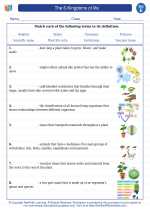The Arctic
The Arctic is a region located at the northernmost part of the Earth. It is characterized by its cold climate, with temperatures often below freezing, and is home to unique ecosystems and wildlife.
Climate
The Arctic has a polar climate, with long, cold winters and short, cool summers. The temperature in the Arctic can drop as low as -50°C (-58°F) in the winter, while in the summer, it can range from 0°C to 10°C (32°F to 50°F).
Geography
The Arctic region includes the Arctic Ocean and parts of Canada, Russia, Greenland, the United States, Norway, Sweden, Finland, and Iceland. It is characterized by its icy landscapes, including glaciers, icebergs, and frozen tundra.
Wildlife
The Arctic is home to a variety of unique wildlife, including polar bears, Arctic foxes, reindeer, seals, and a wide variety of bird species. Many of these animals have adapted to the harsh Arctic environment in order to survive.
Study Guide
- What type of climate does the Arctic have?
- Which animals are commonly found in the Arctic region?
- Name at least three countries that have territory in the Arctic.
- What are some of the physical features of the Arctic landscape?
- How have animals adapted to the Arctic environment?
Studying the Arctic can provide insight into the impact of climate change, the importance of conservation, and the adaptations of living organisms to extreme environments.
.◂Science Worksheets and Study Guides Fifth Grade. The 6-Kingdoms of life
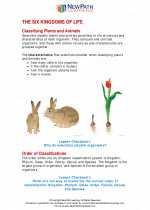
 Activity Lesson
Activity Lesson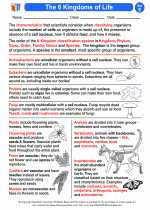
 Worksheet/Answer key
Worksheet/Answer key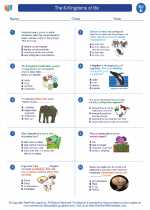
 Worksheet/Answer key
Worksheet/Answer key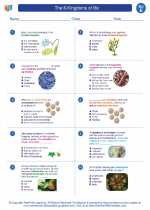
 Worksheet/Answer key
Worksheet/Answer key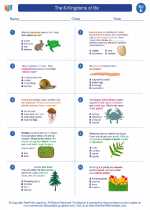
 Worksheet/Answer key
Worksheet/Answer key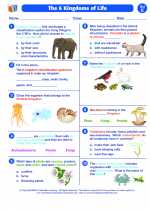
 Vocabulary/Answer key
Vocabulary/Answer key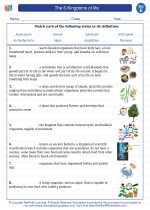
 Vocabulary/Answer key
Vocabulary/Answer key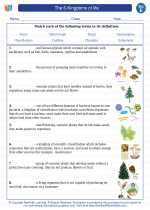
 Vocabulary/Answer key
Vocabulary/Answer key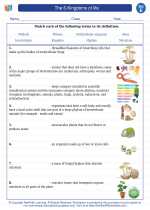
 Vocabulary/Answer key
Vocabulary/Answer key